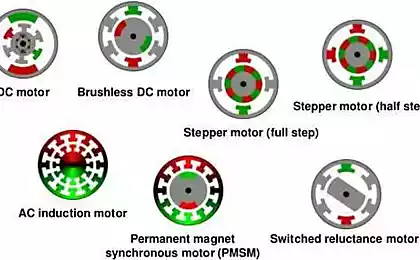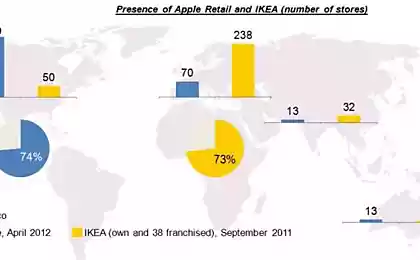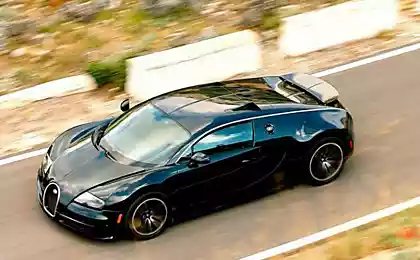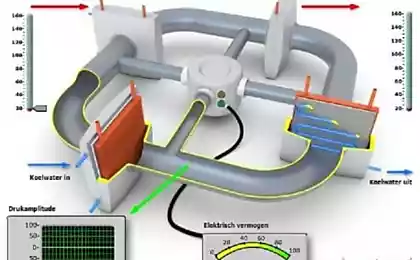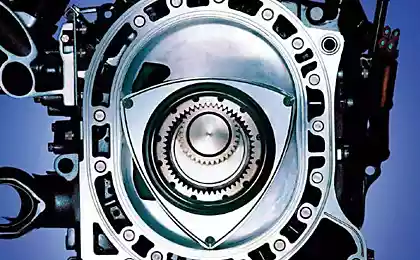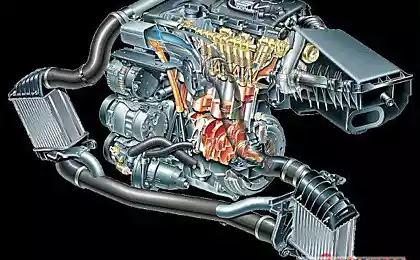646
Secret techniques shops
... Or why buyers hopeless at math.
You went to a coffee shop, and there are two simultaneous actions: the first provides an additional 33% of the coffee, the second - 33% discount on a standard cup of coffee. What action is more profitable?
Most likely, you say - they are equally beneficial. And just say very much. But let's see more. Let the coffee is $ 2 per 200 ml ($ 1 per 100 ml). The first action you get 266 ml for $ 2, that is You pay $ 0, 75 per 100 ml. In the second action, you get 200 ml for $ 1, 34, ie, You pay $ 0, 67 per 100 ml. The second action turns profitable!
BUT! For the buyer is much more pleasant to get something extra for the same price than a discount. Field for use of this feature is unlimited. Remembering supermarkets: "10% more toothpaste for the same price!", "25% more flakes!»
Why work such tricks? Firstly, because buyers often do not remember how much they should cost, or other products (try to remember exactly how much milk you bought the last time). Second, although people are calculated in real money, but decisions are made solely on the basis of speculation and guesswork, which appear due to ignorance of how to deal with numbers. [Next]
Next we will tell more about the 7 tricks, which are successfully used in the stores.
1. Our perception depends on the price that we saw the first
You went to the store and see a designer bag for $ 1,000. "Stuck bucks for some bag ??" You'll be incredibly outraged. Going further, you see different watches for $ 300. It is expensive! Hours can be cheaper! But it seems that it is quite normal price because you're comparing it with the first seen you. Therefore, shops may properly arrange the goods to send your thoughts in the right direction.
2. We are afraid of extremes
We do not like to feel "poor" when we buy the cheapest products, but we do not like to feel cheated when we buy the most expensive product, and the quality of it is pretty average. Stores use it against us, our thinking to sell the product that you need.
There have been such a study: on the counter in the shop put 2 kinds of beer. "Premium" for $ 2, 5, and beer, the label marked "great buy" for $ 1, 8. Approximately 80% of buyers chose a more expensive beer. Then put another kind of beer with a price tag of "super-bargain" price of $ 1, 6. Now, 80% of buyers chose a beer for $ 1, 8, and the other - for $ 2, 5. No one has the most cheap beer.
In the third step removed a beer for $ 1, 6, and put the "super-premium" for $ 3, and 4. Most of the buyers chose a beer for $ 2, 5, a small number of customers - for $ 1, 8, and only 10% chose the most expensive.
3. We love stories
Put in a shop next to the bread maker for $ 279 bread maker for $ 429. Parameters them should differ very little. Sales of cheaper bread machine to increase seriously, although the road is unlikely someone will buy (perhaps, a couple of people). This is because we do not feel the real value of things, and so it seems that we buy very cheap. And then you can say, "Can you imagine, bought a bread maker for just $ 279! And there was almost the same, but for $ 429! And what fool would buy it! "A good story.
4. We do what we say
The school experiment was conducted. Fruits and salads were offered for the highlighted rack, like candy or other sweets, and this technique is to get kids to eat more salad and fruit. It also applies to adults. Experienced restaurateurs will make the menu so that the dishes they want to sell more likely to be available in any manner or provided with a large and bright picture, to get your attention. So you see too bright menu item, just remember that it is a dish that you want in the first place to feed a restaurant.
5. We commit rash acts under the influence of alcohol, fatigue and other factors
When a person drinks, gets tired or is under stress, it greatly simplifies the internal issues that accompany the package. This can be compared with acquaintances at the bar. You see a stranger (stranger), but do not think, "I wonder whether it is sufficiently established and whether the moral character necessary to make me worthy of the party?", You probably think something like, "Um, he did so." That is why machines with water, coffee and snack mounted on the outlet of the huge supermarket. Buyers are tired, they want to eat and drink, they grab everything without thinking about what it is unreasonably expensive. So here's a tip: if you want to make a deal, which involves some risk from your partner - at a business dinner to be alkogol.Nu or catch a partner after a very busy day.
6. Magic numbers 9
We all know this chip: for just $ 1, 99. This is the same as $ 2! We understand this, but the magic number 9 continues to operate, and we do not really take it, and the right thing just because it beckons us a discount. Be incorruptible! Do not say to yourself - this thing is a little more expensive than the dollar! Remember, it is all two!
7. We are exposed to keen sense of justice
We do not like when we are deceived, we believe that we need to be treated fairly. But we do not know the value of things and services. And we are looking for clues and signals from those of these things and services we sell. Dan Ariely, a professor of psychology and behavioral economics, held a simple but very revealing experiment. He announced that he would hold an evening of poetry for students. One group of students, he said that evening for an extra charge, and the other - they will pay for what they have come to listen. Before the concert, it was announced that he is free, that is, and the first group will not have to pay anything, and the second did not pay. Students of the first group were happy they got something worthwhile and is free of charge. Students of the second group is almost all gone, because they felt that they were forcibly dragged here.
What is the normal price for the poetic concert, which gives a professor of psychology? Students do not know. And no one knows. How much should cost a shirt? How much should cost a coffee? And the insurance on the car? Who knows! People do not know the value of things, and as a result our brain uses what understands visual images, tips, emotions, comparing relations ... not that buyers do not know the math, it just has nothing to do with it.
via
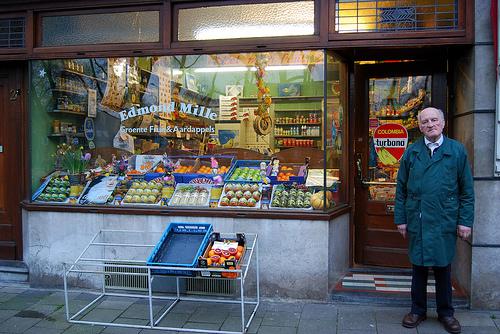
Source:
You went to a coffee shop, and there are two simultaneous actions: the first provides an additional 33% of the coffee, the second - 33% discount on a standard cup of coffee. What action is more profitable?
Most likely, you say - they are equally beneficial. And just say very much. But let's see more. Let the coffee is $ 2 per 200 ml ($ 1 per 100 ml). The first action you get 266 ml for $ 2, that is You pay $ 0, 75 per 100 ml. In the second action, you get 200 ml for $ 1, 34, ie, You pay $ 0, 67 per 100 ml. The second action turns profitable!
BUT! For the buyer is much more pleasant to get something extra for the same price than a discount. Field for use of this feature is unlimited. Remembering supermarkets: "10% more toothpaste for the same price!", "25% more flakes!»
Why work such tricks? Firstly, because buyers often do not remember how much they should cost, or other products (try to remember exactly how much milk you bought the last time). Second, although people are calculated in real money, but decisions are made solely on the basis of speculation and guesswork, which appear due to ignorance of how to deal with numbers. [Next]
Next we will tell more about the 7 tricks, which are successfully used in the stores.
1. Our perception depends on the price that we saw the first
You went to the store and see a designer bag for $ 1,000. "Stuck bucks for some bag ??" You'll be incredibly outraged. Going further, you see different watches for $ 300. It is expensive! Hours can be cheaper! But it seems that it is quite normal price because you're comparing it with the first seen you. Therefore, shops may properly arrange the goods to send your thoughts in the right direction.
2. We are afraid of extremes
We do not like to feel "poor" when we buy the cheapest products, but we do not like to feel cheated when we buy the most expensive product, and the quality of it is pretty average. Stores use it against us, our thinking to sell the product that you need.
There have been such a study: on the counter in the shop put 2 kinds of beer. "Premium" for $ 2, 5, and beer, the label marked "great buy" for $ 1, 8. Approximately 80% of buyers chose a more expensive beer. Then put another kind of beer with a price tag of "super-bargain" price of $ 1, 6. Now, 80% of buyers chose a beer for $ 1, 8, and the other - for $ 2, 5. No one has the most cheap beer.
In the third step removed a beer for $ 1, 6, and put the "super-premium" for $ 3, and 4. Most of the buyers chose a beer for $ 2, 5, a small number of customers - for $ 1, 8, and only 10% chose the most expensive.
3. We love stories
Put in a shop next to the bread maker for $ 279 bread maker for $ 429. Parameters them should differ very little. Sales of cheaper bread machine to increase seriously, although the road is unlikely someone will buy (perhaps, a couple of people). This is because we do not feel the real value of things, and so it seems that we buy very cheap. And then you can say, "Can you imagine, bought a bread maker for just $ 279! And there was almost the same, but for $ 429! And what fool would buy it! "A good story.
4. We do what we say
The school experiment was conducted. Fruits and salads were offered for the highlighted rack, like candy or other sweets, and this technique is to get kids to eat more salad and fruit. It also applies to adults. Experienced restaurateurs will make the menu so that the dishes they want to sell more likely to be available in any manner or provided with a large and bright picture, to get your attention. So you see too bright menu item, just remember that it is a dish that you want in the first place to feed a restaurant.
5. We commit rash acts under the influence of alcohol, fatigue and other factors
When a person drinks, gets tired or is under stress, it greatly simplifies the internal issues that accompany the package. This can be compared with acquaintances at the bar. You see a stranger (stranger), but do not think, "I wonder whether it is sufficiently established and whether the moral character necessary to make me worthy of the party?", You probably think something like, "Um, he did so." That is why machines with water, coffee and snack mounted on the outlet of the huge supermarket. Buyers are tired, they want to eat and drink, they grab everything without thinking about what it is unreasonably expensive. So here's a tip: if you want to make a deal, which involves some risk from your partner - at a business dinner to be alkogol.Nu or catch a partner after a very busy day.
6. Magic numbers 9
We all know this chip: for just $ 1, 99. This is the same as $ 2! We understand this, but the magic number 9 continues to operate, and we do not really take it, and the right thing just because it beckons us a discount. Be incorruptible! Do not say to yourself - this thing is a little more expensive than the dollar! Remember, it is all two!
7. We are exposed to keen sense of justice
We do not like when we are deceived, we believe that we need to be treated fairly. But we do not know the value of things and services. And we are looking for clues and signals from those of these things and services we sell. Dan Ariely, a professor of psychology and behavioral economics, held a simple but very revealing experiment. He announced that he would hold an evening of poetry for students. One group of students, he said that evening for an extra charge, and the other - they will pay for what they have come to listen. Before the concert, it was announced that he is free, that is, and the first group will not have to pay anything, and the second did not pay. Students of the first group were happy they got something worthwhile and is free of charge. Students of the second group is almost all gone, because they felt that they were forcibly dragged here.
What is the normal price for the poetic concert, which gives a professor of psychology? Students do not know. And no one knows. How much should cost a shirt? How much should cost a coffee? And the insurance on the car? Who knows! People do not know the value of things, and as a result our brain uses what understands visual images, tips, emotions, comparing relations ... not that buyers do not know the math, it just has nothing to do with it.
via

Source:



